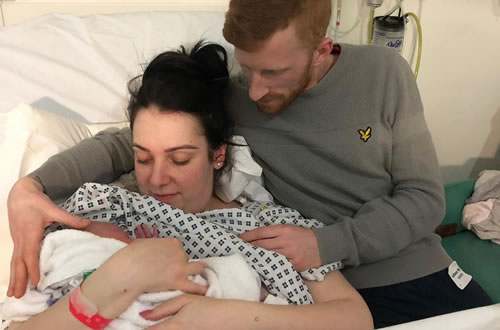Group B Streptococcus or Strep is a type of bacteria that is actually more common than you think. It can be present in both men and women and can be found in the rectum or vagina. Although it is common, it is completely harmless with most patients not even realising that they have it.
In rare occasions, the bacteria only becomes a problem in specific situations:
- In pregnant women passing it on their new baby
- Young babies who can become very unwell
- The elderly who are already unwell causing serious infections
Pregnant women with Group B Strep will usually find their unborn child to be perfectly well, there is an extremely small risk of miscarriage but it is very rare. There is also a small risk of it being transferred to the baby during the birth but only affecting around 1 in 1,750 pregnancies.
Group B Strep can be common in pregnant women and whilst it is not routinely tested for, the test is relatively simple usually in the form of a urine test or vaginal swab.
Imspex Medical has of course been involved in exploratory studies involving analysis of volatile organic compounds (VOCs) on vaginal swabs to detect the bacteria using our GC-IMS technology.
“This platform has both high sensitivity and good specificity to a range of chemical compounds. Our main outcome was to determine the sensitivity and specificity of VOC analysis for the detection of maternal GBS in vaginal swabs during pregnancy. Our study has demonstrated that the sensitivity and specificity of the VOC analysis by GC-IMS for the detection of GBS from vaginal swabs was 0.81 (95% confidence interval [CI], 0.71-0.89) and 0.97 (95% CI, 0.91-1) respectively. We conclude that the use of VOCs as biomarkers for the detection of maternal GBS in the vagina is a novel tool.”
Our studies have shown that this sort of test can produce results in an extremely timely manner where speed can be of the essence in situations where a baby is at risk during early labour. Testing a pregnant woman in early labour can be life saving in the most extreme circumstances but if regular screening were to be introduced it can help to identify the correct treatment or medication via a midwife or health visitor, personalising the woman’s healthcare during her pregnancy. Our technology has high potential to be used in a clinical setting with our Fluidspec machine proven to analyse headspace of swab samples to detect infectious diseases such as Group B Streptococcus and sepsis related infections.
The benefits of healthcare providers having access to fast and affordable diagnosis is that recommendations can be made more efficiently to pregnant women which would include:
- Amending birth plans to recommend giving birth in a hospital instead of a midwife-led unit or at home.
- Relevant antibiotics being prescribed either before or during labour to reduce the risk of the baby becoming unwell.
- The mother and baby remaining in hospital for a longer time period after birth for monitoring.
- Early detection and diagnosis can also prevent young babies from needing treatment which can be worrying and stress inducing.
For full details about our Fluidspec and Gas Chromatography Ion Mobility Spectrometry (GCIMS) technology, click here.

